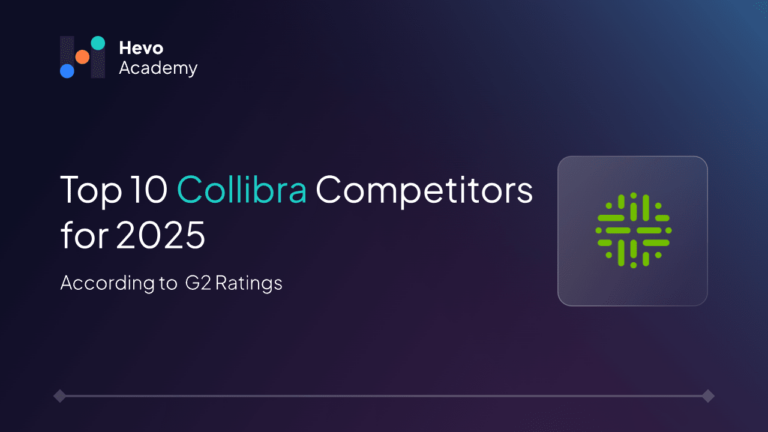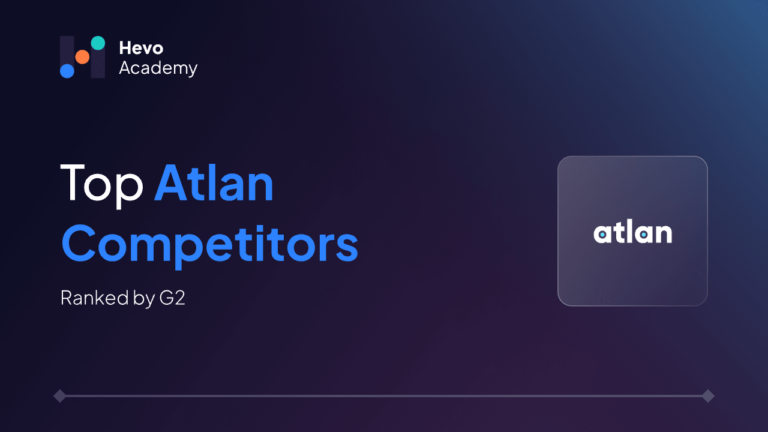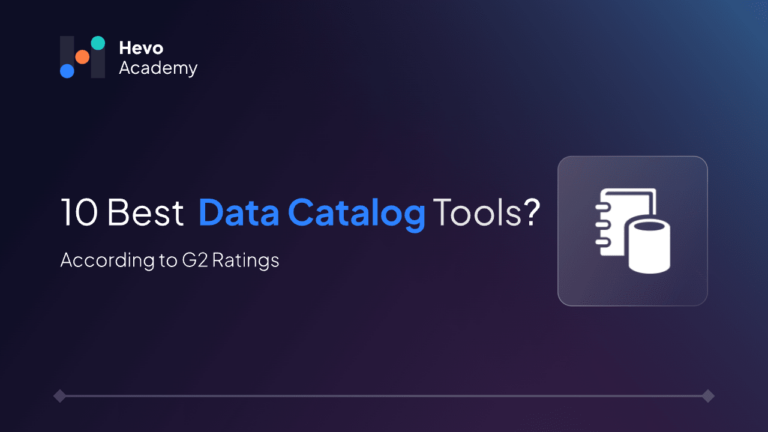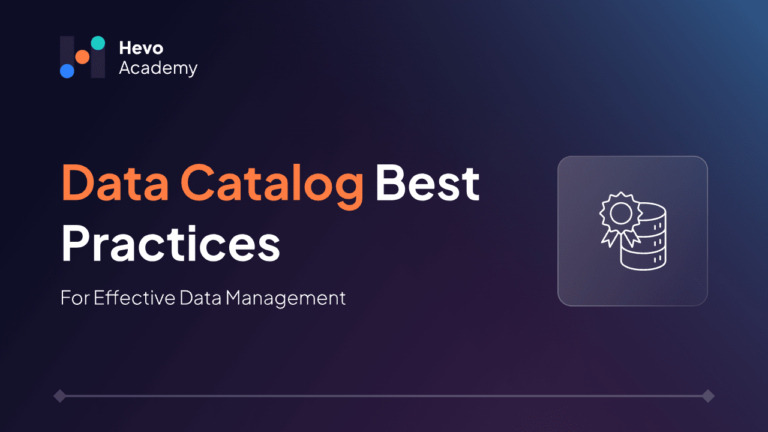Data catalog tools, most often, form the backbone of efficient data governance within organizations, which involves organizing, discovering, and analyzing the assets that most power an organization’s data. Among the solutions offered in this space, most would find options from Collibra appealing. However, depending on your requirements—cost, scalability, ease of use, or integrations—you might want to explore alternatives.
Table of Contents
This blog dives into the top Collibra competitors and Collibra alternatives, highlighting their features, pros, and cons to help you choose the right tool for your organization.
What is the Usage of a Data Catalog Tool?
A data catalog is essentially a metadata repository with a single view of the organization’s data assets. Such tools are used to help meet these goals:
- Data Discovery: Quickly locate datasets, tables, or metrics across systems.
- Data Governance: Enforce compliance and ensure the integrity of data through policies and workflows.
- Collaboration: Enable teams to understand and share knowledge about data.
- Data Quality and Lineage: Track data transformations and be sure that datasets meet appropriate data quality standards.
- Integration: It connects seamlessly with analytics, BI tools, and any other platform.
Data catalog tools are a necessity in modern data-driven enterprises and empower data teams to optimize workflows and improve data literacy. Read about the data catalog features that you should consider based on your individual requirements.
Top 10 Collibra Alternatives
| First Pick | Second Pick | Third Pick |
| Atlan (G2 Rating: 4.5/5) | Segment (G2 Rating: 4.5/5) | Alation (G2 Rating: 4.4/5) |
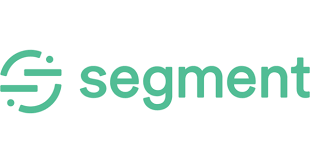 | ||
| Key Features: Automated metadata management, real-time collaboration, and seamless integrations with data tools. | Key Features: Data Modeling, workflow management, data enrichment, predictive modeling, data preparation | Key Features: Active metadata management, strong data lineage tools, and SQL-based query integration. |
| Know more about Atlan | Know more about Segment | Know more about Alation |
1. Atlan

(G2 Rating: 4.5/5)
Atlan is a modern data collaboration and cataloging tool designed to increase the productivity of data teams. Automated metadata management, real-time collaboration, and seamless integrations with data tools such as Snowflake and Tableau help make data democratization possible with Atlan. Its intuitive interface and AI-driven capabilities simplify data discovery and governance for non-technical users. Advanced versioning and change management capabilities make it an ideal choice for fast-growing organizations looking for scalable and transparent data practices.
Key Features
- Automated metadata management with AI-powered discovery.
- Strong collaboration features for data teams.
- Seamless integrations with Snowflake, Redshift, and BI tools such as Tableau.
Pros and Cons
| Pros | Cons |
| Intuitive interface for non-technical users. | Limited advanced data governance features. |
| Robust versioning and change management. | Pricing can be steep for smaller teams. |
| Real-time collaboration capabilities. | Limited customization for large enterprises. |
2. Segment

(G2 Rating: 4.5/5)
Segment is a customer data platform (CDP) that specializes in real-time data collection, routing, and integration. It is famous for its pre-built connectors, which allow businesses to unify and deliver data to various analytics, marketing, and sales tools. It is excellent for teams focused on customer analytics and data-driven marketing strategies. Although it is not a traditional data catalog, its scalable infrastructure and ability to handle high-velocity data streams make it a valuable addition to any data ecosystem.
Key Features
- Customer data platform focused on data routing.
- Real-time data collection and delivery to multiple destinations.
- Pre-built integration with hundreds of tools.
Pros and Cons
| Pros | Cons |
| Simplifies data integration across platforms. | Not a traditional data catalog tool. |
| Excellent for marketing and customer analytics teams. | Limited features for metadata management and governance. |
| Scalable for growing data needs. | Pricing can be high for enterprise use. |
3. Ataccama One

(G2 Rating: 4.2/5)
Ataccama One is an all-in-one data quality, governance, and cataloging platform. The product utilizes AI-powered tools in data profiling, cleansing, and lineage tracking, thereby enabling end-to-end automation of complex workflows. It is suitable for enterprises requiring strong governance and data management capabilities. Its scalability and advanced analytics make it apt for large datasets, and the centralized platform simplifies compliance and operational efficiency for organizations managing diverse data assets.
Key Features
- Unified platform for data quality, governance, and cataloging.
- AI-powered data profiling and cleansing.
- Data lineage and impact analysis tools.
Pros and Cons
| Pros | Cons |
| Comprehensive suite for data management. | Steeper learning curve. |
| Suitable for enterprises needing advanced governance. | Enterprise-oriented pricing. |
| Strong automation capabilities. | It may require additional tools for integration. |
4. Alation

(G2 Rating: 4.4/5)
Alation is a leading data catalog and governance tool focused on collaboration and metadata management. It facilitates active metadata that promotes discovery, hence allowing continuous user learning. Alation supports SQL-based query integration and data stewardship workflows, making it the choice of analytics teams. It offers robust data lineage capabilities and integrates well with popular BI tools to make it perfect for organizations that seek to promote data literacy and governance at scale.
Key Features
- Active metadata management for continuous learning.
- SQL-based query integration for analysts.
- Commenting and data stewardship are collaboration tools.
Pros and Cons
| Pros | Cons |
| Focuses heavily on user adoption. | Configuration complexity for large implementations. |
| Pre-built integrations with popular data tools. | Pricing may be prohibitive for smaller organizations. |
| Strong data lineage and governance features. | Requires technical expertise to set up workflows. |
5. Egnyte

(G2 Rating: 4.4/5)
Egnyte is a hybrid cloud-based solution offering file sharing, governance, and data cataloging. It possesses powerful compliance monitoring and metadata search for structured and unstructured data. Egnyte is suited for hybrid environments in business, making it scalable in secure collaboration. Its data governance, security, and risk management make it versatile for an organization that handles sensitive information and requires unified data visibility.
Key Features
- Hybrid cloud-based file sharing and governance.
- Comprehensive compliance monitoring and risk management.
- Metadata search for structured and unstructured data.
Pros and Cons
| Pros | Cons |
| Simplifies file sharing and governance. | Limited advanced cataloging features. |
| Strong security and compliance capabilities. | Focuses more on file management than data catalogs. |
| Scalable for hybrid environments. | Less suitable for complex data governance. |
6. SAP Data Intelligence

(G2 Rating: 4.1/5)
SAP Data Intelligence is an enterprise-grade for orchestrating, integrating, and cataloging data across hybrid environments. Substantial metadata discovery, enrichment, and data lineage are prominent features, making it perfectly suitable for organizations that leverage SAP ecosystems. It reduces complex workflows and ensures robustness in compliance with the tool. It is highly integrated with the existing SAP infrastructure, making it reliable, while advanced analytics tools push massive data insights for large-scale organizations.
Key Features
- Data integration and orchestration across hybrid environments
- Metadata discovery and enrichment
- Specialized SAP ecosystems and solutions for enterprise.
Pros and Cons
| Pros | Cons |
| Powerful for SAP-based enterprises. | High cost for licensing and maintenance. |
| Comprehensive data lineage tools. | Overkill for non-SAP environments. |
| Enterprise-grade scalability and reliability. | Complex for smaller-scale deployments. |
7. Amundsen
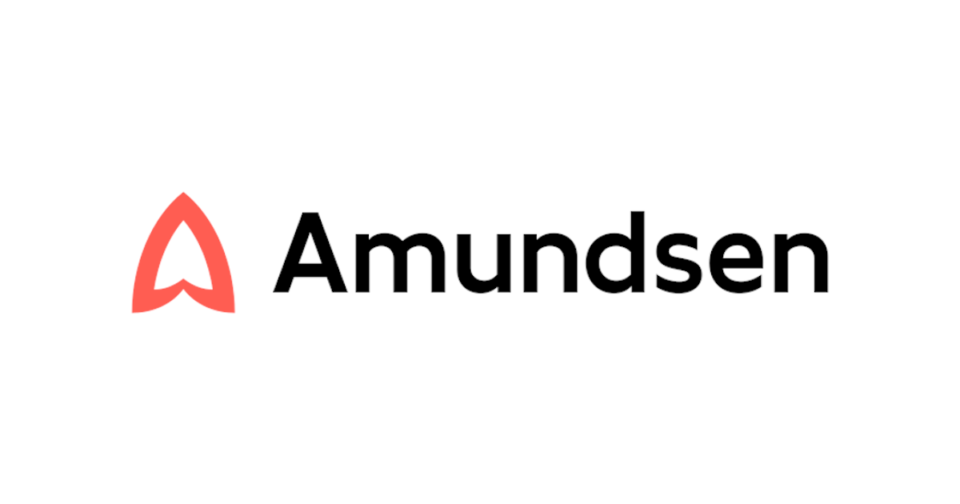
G2 Rating: NA
Amundsen is an open-source data cataloging and discovery tool that focuses on simplifying data search and lineage tracking. Developed by Lyft, it integrates well with data lakes and BI tools, allowing developers and analysts to access metadata efficiently. Its lightweight, customizable design is developer-friendly and excellent for organizations looking for free, open-source solutions. With an active community and flexible architecture, Amundsen is perfect for encouraging transparency in data ecosystems.
Key Features
- Open-source data discovery and cataloging tool.
- Works well with data lakes and BI tools.
- Data lineage and search-focused.
Pros and Cons
| Pros | Cons |
| Lightweight and developer-friendly. | Limited out-of-the-box features. |
| Highly customizable and open-source. | Requires technical expertise for setup. |
| Free to use with an active community. | Not ideal for non-technical users. |
8. Smartsheet
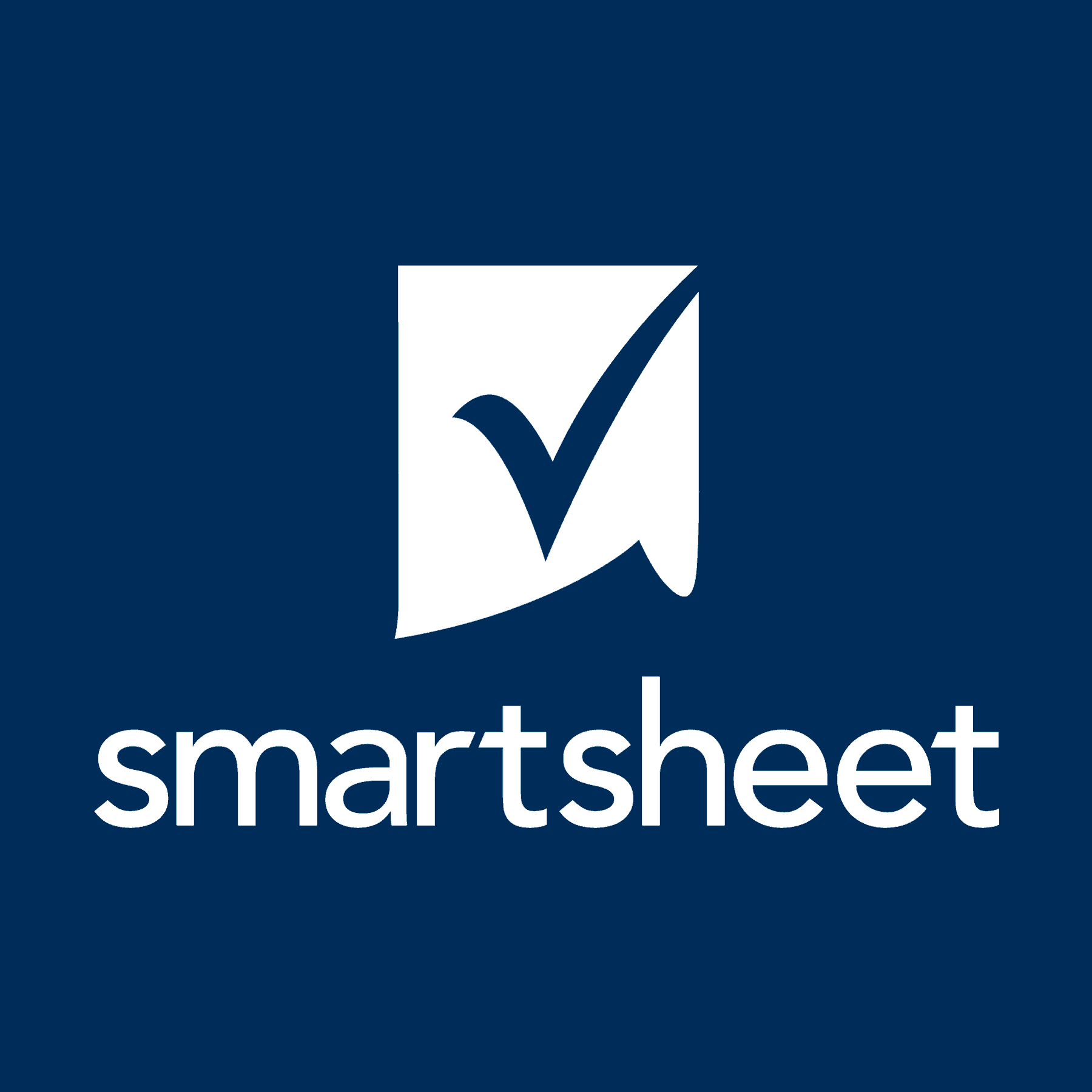
(G2 Rating: 4.4/5)
Smartsheet is an application that allows for project management and workflow automation. Teams can use this tool to streamline operations and data sharing. Its collaborative interface allows teams to create workflows, track tasks, and set up projects from templates. While it’s not better suited for data cataloging, Smartsheet’s pricing and user-friendly design make it a valuable tool for managing processes and enhancing collaboration in smaller teams or non-technical environments.
Key Features
- A collaboration-centric tool with automation capabilities.
- Workflow management and data exchange.
- Built-in templates for projects and processes.
Pros and Cons
| Pros | Cons |
| User-friendly interface. | Lacks advanced data cataloging features. |
| Great for managing data workflows. | Limited automation for complex workflows. |
| Affordable compared to enterprise tools. | Better suited for project management. |
9. Informatica Enterprise Data Catalog

(G2 Rating: 4.3/5)
Informatica Enterprise Data Catalog, an AI-based tool, is used for metadata management, discovery, and governance. These provide deep insight into lineage and quality. They integrate with enterprise tools available in a very wide number of enterprise ranges. Suitable for complex workflow management and large organizations through its automated capabilities, its scalability also ensures consistent enterprise-grade data governance, ensuring Informatica is on the leaderboard for business search-in solutions for reliable data management solutions.
Key Features
- AI-driven cataloging for metadata and lineage.
- Advanced data discovery and preparation tools.
- Robust data governance capabilities.
Pros and Cons
| Pros | Cons |
| Enterprise-grade with vast integration support. | Expensive for small to medium businesses. Check Informatica’s pricing and see if it fits your budget. |
| Automation-driven workflows for metadata management. | Implementation can be complex. |
| Scalable for large organizations. | Requires skilled personnel for optimization. |
10. SAS Viya

(G2 Rating: 4.3/5)
SAS Viya is an analytics platform offering cloud-native analytics, advanced analytics, and AI-driven metadata management. Powerful tools help support hybrid environments for the organization handling large-scale data. SAS Viya shines in complex analytics workflows, while its AI/ML workload capabilities are supported efficiently. It has robust governance and lineage features, but at such a high cost and advanced level, only the experts would be able to work efficiently.
Key Features
- Unified analytics platform with features for data governance.
- AI-driven metadata insights and automation.
- Cloud-native for flexibility.
Pros and Cons
| Pros | Cons |
| Advanced analytics capabilities alongside cataloging. | High pricing compared to other catalog tools. |
| Strong support for AI/ML workloads. | Requires expertise to utilize advanced features. |
| Scalable for hybrid environments. | Limited community compared to open-source tools. |
Factors to Consider while Choosing a Data Catalog Tool
- Ease of Use: The user interface should be user-friendly and adaptable for non-technical use.
- Integration Capabilities: Verify compatibility with your existing data sources, BI tools, and cloud platforms.
- Data Governance Features: High-feature robust governance metadata management support in compliance.
- Scalability: Pick a tool that can handle the growth of data volume and complexity.
- Cost-Effectiveness: Review the pricing model to ensure it fits your budget and organizational needs.
Conclusion
Selecting the right data catalog tool can help streamline data discovery, governance, and collaboration. While Collibra is a strong contender, there are others like Atlan, Alation, and Informatica that bring unique features based on diverse needs. Ease of use, scalability, or integration might be one of the critical factors to look at when considering each tool. Open-source tools like Amundsen are more cost-effective, while enterprise-grade ones like SAP fit complex workflows. Select a tool that is in line with your goals and empowers your data teams to deliver better insights and efficiency.
Looking for an automated solution to streamline data workflows? Try Hevo’s 14-day free trial to experience a better way to automate and manage your workflows.
FAQs
1. What is similar to Collibra?
Tools like Atlan, Alation, Informatica, and SAP Data Intelligence offer capabilities similar to Collibra, focusing on data cataloging, governance, and collaboration for organizations that are managing large datasets and complex workflows.
2. What type of tool is Collibra?
Collibra is a data governance and cataloging tool designed to help organizations discover, manage, and govern their data assets while ensuring compliance and fostering collaboration among data teams.
3. What is the difference between DataHub and Collibra?
DataHub is an open-source, developer-focused metadata platform, while Collibra is a commercial tool emphasizing enterprise-grade data governance, collaboration, and compliance features. DataHub is lightweight and customizable; Collibra offers robust, enterprise-ready solutions.

